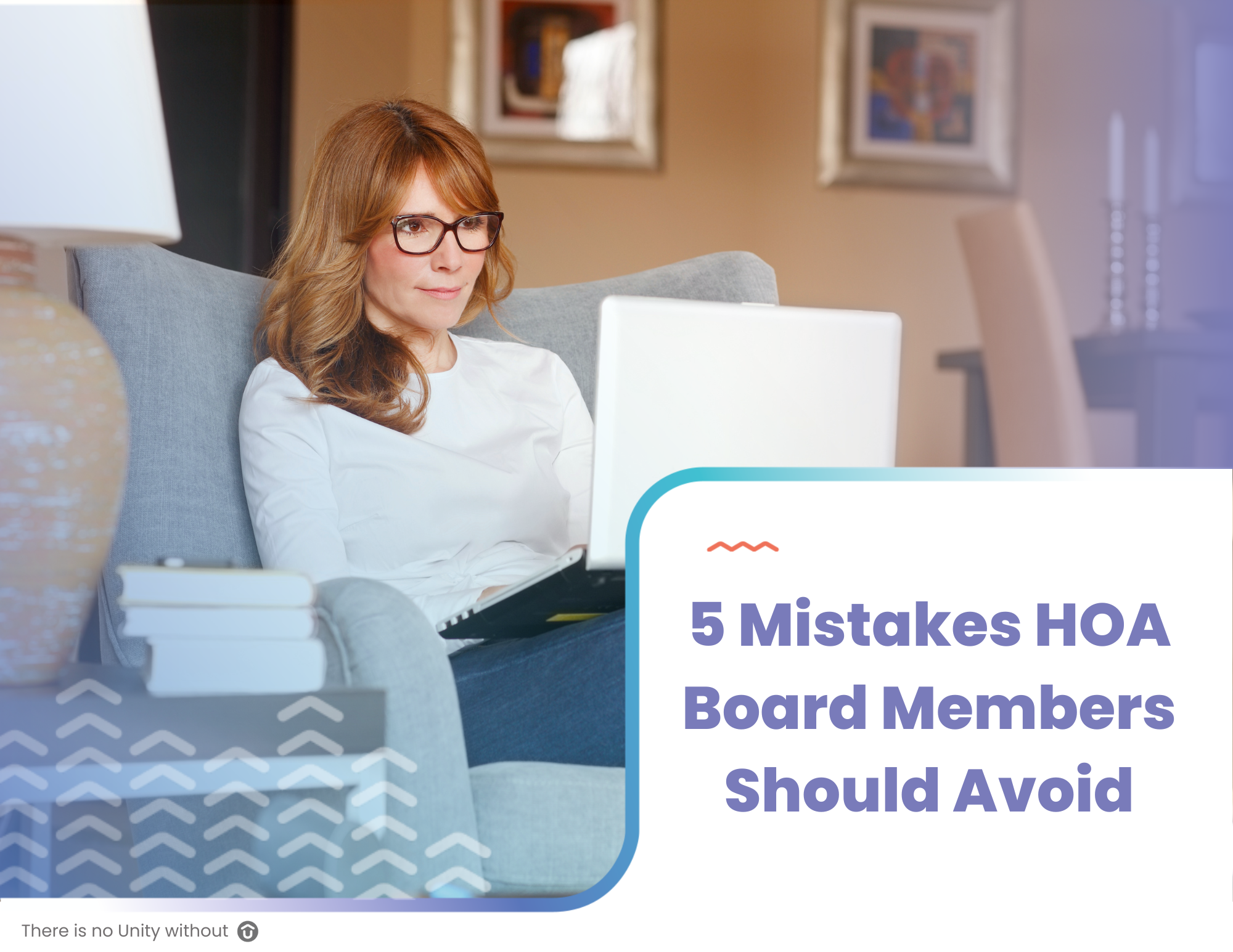Being a Board Member of a homeowners association is a valuable opportunity to lead and serve the community. Many members relish the chance to participate in the association's affairs, get to know their neighbors, and make a positive impact.
However, the role of a Board Member comes with responsibilities and challenges. Making costly mistakes can result in legal issues or harm to the association. Working with a Community Association Manager can benefit the Board Members and the association by avoiding missteps and ensuring a seamless operation.
Here are some of the common mistakes association board members should avoid.
1. Mismanaging association funds
Poor judgment in handling association funds is a common issue. Spending excessively and recklessly without keeping reserve funds for unexpected maintenance or repairs is a typical mistake. Long-term financial planning should be the focus for Board Members. While it's tempting to prioritize short-term needs, it's crucial to consider the future needs of the community. To avoid these pitfalls, it's wise to review prior-year budgets and seek guidance from Community Association Managers during the budget review process to ensure cost-effective decisions.
2. Becoming overzealous
Board Members may act impulsively due to their excitement about the position. Careful consideration should be taken before making significant policy changes. For instance, switching vendors with the belief of benefiting the association may result in discontinuing ongoing projects or significant delays on other matters. I think consulting with your Community Association Manager can give you some insight into better vendor agreements and making changes within the community.
3. Incorrect meetings
It is important for all board meetings to be documented and for all homeowners to be notified. Any time a majority of the board members gather and discuss association business, it is considered a board meeting. Sometimes Board Members may have informal conversations about business, not realizing that it could go against association laws. To avoid these misunderstandings, it would be best for you to communicate with the Community Association Manager and clarify what topics are appropriate to discuss with other Board Members outside of official meetings.
4. Not seeking legal advice
It may be necessary to seek legal advice in certain situations. Community Association Managers are not equipped to provide legal advice, so it's best to work with the association's attorney if you face a potential lawsuit with a homeowner. Although hiring an attorney may seem costly, it may be a cheaper alternative compared to potential legal liabilities.
5. Not adhering to the governing documents
Board members must be diligent in reviewing the association's governing documents, including the declaration and bylaws, in ensuring compliance. Neglecting to do so, particularly by newly elected boards, can result in unintended non-compliance and create issues. It is essential that each Board Member thoroughly understands all relevant association documents.
Serving as a Board Member entails a substantial responsibility that demands sound decision-making abilities and discernment. Simple errors can lead to significant problems, but having a positive relationship with your Community Association Manager can aid in the smooth operation of the community.

